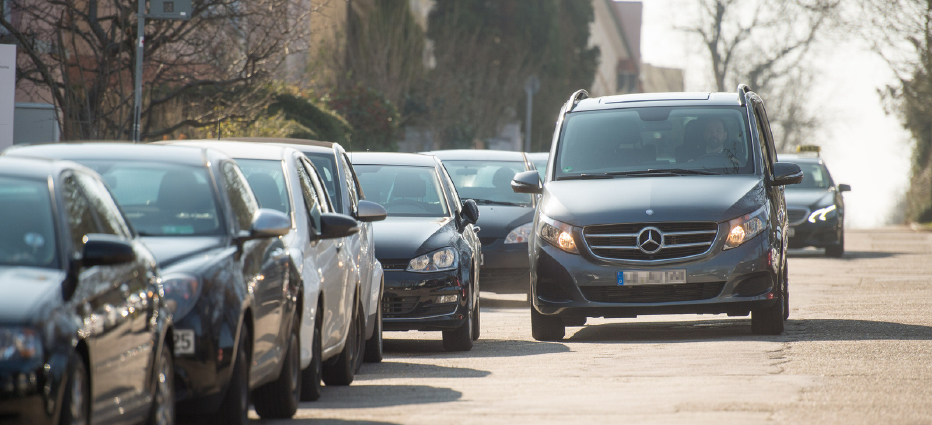
The daily search for parking is often a source of stress and frustration, especially if it takes up as much time as the actual journey.
And yet cars are constantly driving past available parking spaces without actually parking there. Wouldn’t it be nice if these cars could inform other drivers of how big these available spaces are, and where to find them?
That is exactly what Mercedes-Benz and Bosch are working on. Together they are testing community-based parking – a new, smart service that makes finding a parking space faster and easier. They have launched a pilot project in the greater Stuttgart area involving various Mercedes-Benz test vehicles. Sensors on board these vehicles enable them to generate data on available curbside spaces. They are also equipped with a communication interface with which to report and receive such data.
“Nearly all of our Mercedes-Benz cars are connected by a smart network. When they are also equipped with the right sensors, they generate data ‘in passing,’ so to speak. We see using that data for the rapid identification of available parking spaces as the next logical step,” says Sajjad Khan, head of Digital Vehicle and Mobility at Mercedes-Benz.
“With community-based parking, finding a space becomes a kind of shared endeavor. This lets us shorten the search for parking considerably and guide drivers straight to an available space,” says Dr. Rolf Nicodemus, head of the connected parking project at Bosch.
Using existing sensors for a new application
The ultrasonic sensors already integrated into the vehicle can continuously scan the roadside at speeds of up to 55 kilometers per hour. When they locate available parking spots, the collected data is sent from the Daimler Vehicle Backend via a secure data link to the Bosch IoT Cloud for analysis. Methods of data mining are applied to verify that the identified spaces are indeed available parking spots. If, for instance, vehicles keep reporting an available space at a particular spot on a busy road, it is highly likely that this is a driveway and therefore cannot be used for parking.
In the first phase of this service offered by Mercedes-Benz and Bosch, the system calculates the probability of finding an available space on a given street. In the next phase, once community-based parking has become more widely established, it should even be possible to report the availability and dimensions of curbside spaces in real time. Combined with further information about available spaces, for example those in public parking garages, this data from community-based parking can subsequently be shown as a digital parking-space map on the in-car display or via the “Mercedes me” app. Then all the driver has to do is select this destination in the navigational system, and they will be guided straight to the available parking space.
Stress-free parking minimizes driver frustration
The ability to find a suitable parking space quickly not only saves drivers time and fuel, but it is also kind to their nerves and the environment. In combination with park assist systems such as Remote Park Pilot, which is now available in the new Mercedes E class, community-based parking clearly minimizes the stress of parking.